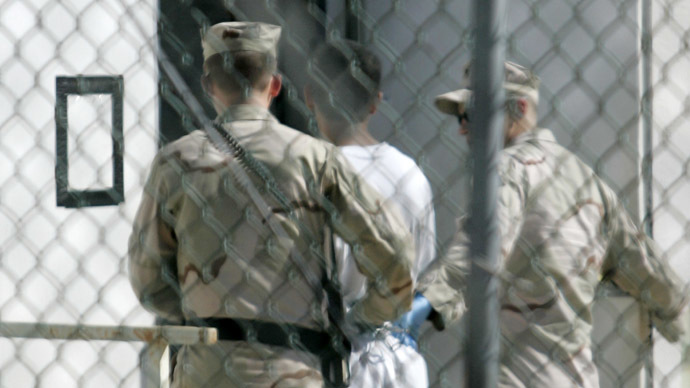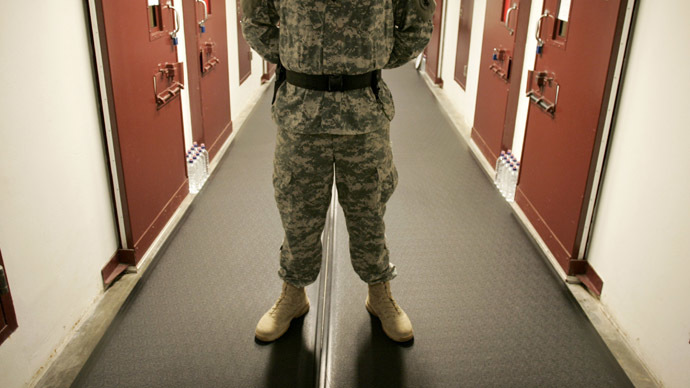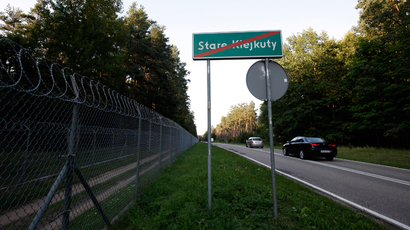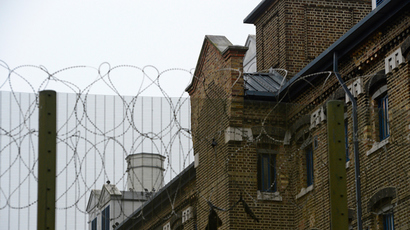UK human rights NGOs boycott ‘whitewash’ rendition & torture inquiry, citing 'cover-up'

Some of the UK’s leading human rights groups are to boycott the official investigation into Britain’s involvement in post 9/11 rendition and torture, saying the parliamentary inquiry will be neither impartial nor thorough, The Observer reports.
Nine human rights organizations have signed a letter to the parliament’s Intelligence and Security Committee (ISC) explaining that they want no part in their investigation into the UK’s role in the alleged mistreatment of prisoners in the years after 9/11.
The letter, which was seen by The Observer, was signed by such human rights heavyweights as Amnesty international, Reprieve and Liberty.
Their refusal to take part stems from the decision by the UK government to hand the whole inquiry to the ISC rather than having it run by an independent judge, which, they say, is tantamount to an establishment cover-up.
In the UK, MI6, MI5 and GCHQ will not need to go to such lengths as the ISC has no real power over them.
READ MORE: UK court rules Gaddafi opponent cannot sue MI6 as it would harm 'national interests'
“Consequently, we as a collective of domestic and international non-governmental organizations do not propose to play a substantive role in the conduct of this inquiry,” the letter reads.
“The ISC is not and cannot be, by its very design, adequate to the task of carrying out an independent investigation of these violations. It remains the case that the Prime Minister holds an absolute veto over its membership,” the NGOs say.
When the coalition government came to power in 2010, Prime Minister David Cameron told MPs that only a “judge-led inquiry” would be able to “get to the bottom of this case”.
But an initial enquiry by Sir Peter Gibson, a retired appeal court judge, was suspended two years ago after evidence began to surface of British complicity with the US in the CIA’s torture and rendition programs. The government decision at this point to hand everything over to the ISC was widely criticized.

“We remain un-persuaded that the decision to cut short the work of the flawed Gibson inquiry and to pass the baton on the ISC is an adequate substitute for the establishment of an independent judicial inquiry,” the charities say.
“What little credibility the ISC had left is rapidly evaporating. It should now be abundantly clear that it is simply incapable of getting to the truth on the UK’s role in rendition and torture,” said Clare Algar, executive director of Reprieve.
But the chairman of the ISC, the former Conservative foreign and defense secretary, Sir Malcolm Rifkind, said that whether human rights groups choose to take part in the inquiry or not would make little difference to its conclusions.
READ MORE: UK intelligence 'involved in rendition', told to ignore torture - inquiry
“If human rights groups wish to take part and contribute to our discussions, we would be very interested to hear what they have to say. If they don’t wish to, then that’s a matter for them,” he said as cited by The Observer.
Gibson, though, did write up a report into his incomplete investigation, in which he said that British officials were by in large reluctant to question waterboarding, hooding, or sleep deprivation for “fear of damaging liaison relationships,” an apparent reference to the CIA.
But because the ISC is appointed by the executive it can be fobbed off by Britain’s security and intelligence services as there is no separation of powers.
In contrast the US Senate intelligence committee, chaired by Dianne Feinstein, has much more teeth but even then has faced intimidation and cover ups from the CIA.
Last year Feinstein accused the CIA of secretly removing information from computers relating to secret detention programs.
“I have grave concerns, that the CIA’s search may well have violated the separation of powers principle embodied in the United States Constitution,” she said.













